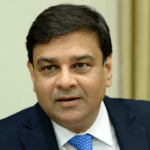India has bought more than five million tonnes of wheat since mid-2016, already its biggest annual purchase in a decade, after it began an import campaign to meet a supply shortfall left by two years of lower production.
The country is slowing down imports ahead of the harvest in April and purchases in the months ahead will depend on production this year, two traders told Reuters on Wednesday.
“There will be more deals signed in the coming months,” said one Singapore-based trader. “It will not be more than 200,000 to 300,000 tonnes as the domestic harvest is expected to replenish supplies.”
Thomson Reuters data showed 5.1 million tonnes of wheat has been delivered or loaded for arrival into India since July 1, while traders estimated the country has bought about 5.2 million tonnes.
More than one million tonnes of wheat was delivered to India in January and February arrivals have already hit close to 400,000 tonnes.
India bought 6.7 million tonnes of wheat in 2006/07, according to the U.S. Department of Agriculture.
The country began importing wheat around the middle of last year after two years of dry weather and unseasonal rains hit production in the world’s second largest consumer of the grain.
 Why your child must study in boarding schoolGems Akademia
Why your child must study in boarding schoolGems Akademia Start 2017 by securing your family’s future!HDFC Life
Start 2017 by securing your family’s future!HDFC Life
The country has bought wheat mainly from Ukraine and Australia. Indian flour mills paid about $210-$212 a tonne, including cost and freight (C&F), for Ukrainian wheat.
For Australian Standard Wheat (ASW), millers paid $215-$220 a tonne and Australian Premium Wheat (APW) was delivered to the country at about $235-$240 a tonne, traders said.
Indian wheat futures fell for a second day on Tuesday, as data released on Friday showed higher planting compared with last year.
Winter wheat planting in India this year was up about 7 percent at 31.78 million hectares as of Friday, government data showed. V
source”cnbc”





Top Comment
Another miserable failure of the NDA Government. This Government is Incompetent and fooling people on Emotive Issues.Naveed Khan